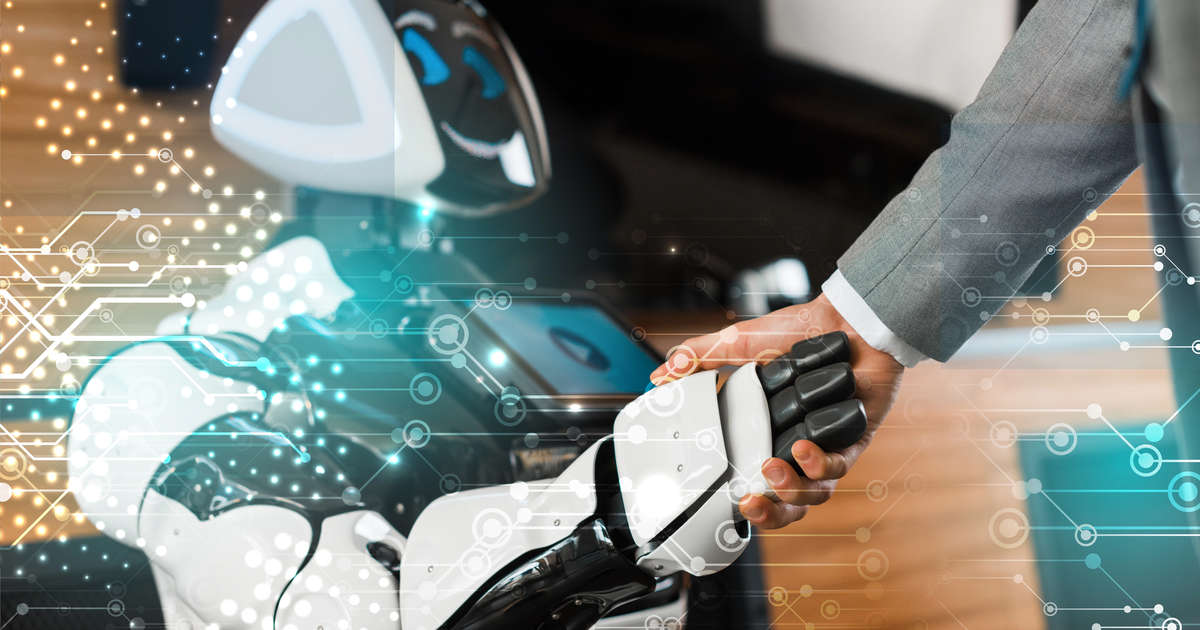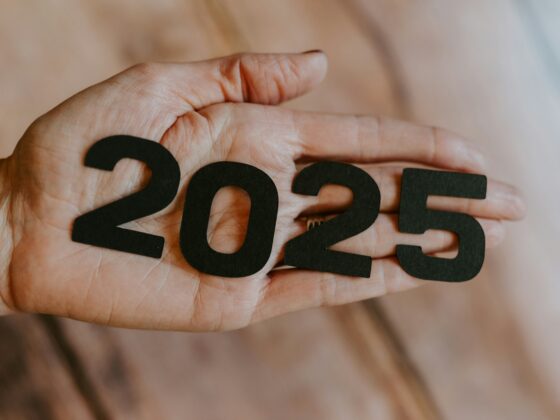
No longer a “nice to have,” AI is becoming essential to operational success for hotel teams. According to the Nielsen Norman Group, generative AI can increase user productivity by an astounding 66%. The Massachusetts Institute of Technology (MIT) found that skilled professionals who integrated AI into their workflows experienced a 40% productivity boost. These aren’t incremental improvements, they represent paradigm shifts.
McKinsey & Company reports that AI can automate between 60% and 70% of data collection and processing tasks. For hotels, where real-time data powers everything from revenue management to marketing automation, this level of automation means faster, smarter decisions. Bain & Company echoes this, revealing that employees using generative AI complete tasks 40% faster than those relying on traditional methods. The performance benefits are clear.
But despite this overwhelming potential, the reality is sobering. Gartner reports that 85% of AI projects fail to deliver their intended business value. That’s a staggering failure rate and it raises a crucial question: If AI is so powerful, why is hospitality and other industries struggling to leverage it?
The key to sustainable AI integration is building AI literacy. This means more than just learning how to use tools. It’s about understanding what AI can and can’t do. Staff need to grasp the fundamentals of AI, its real-world applications, and how it can enhance their specific roles.
Fostering this literacy requires more than training. It requires a cultural shift. One in which AI is seen as an enabler. Leaders must cultivate an environment where experimentation is encouraged, questions are welcomed, and early wins are celebrated.
Ultimately, hotels that balance AI innovation with human-centric service will come out ahead. AI enables faster decision-making, predictive personalization, and more agile resource management. But it’s the people, empowered, informed, and supported by AI, who will deliver the next generation of guest experiences.
As the industry stands at this crucial crossroads, the choice is clear. Embrace AI strategically, educate teams effectively, and foster a culture of curiosity and collaboration or risk falling behind.
Misunderstanding of ROI
Too often, hotel executives view AI as a line-item expense, a cost center, rather than a powerful strategic investment with substantial, measurable returns. This viewpoint is understandable, rooted in the industry’s legacy financial models, where budget decisions are tightly linked to short-term, revenue-facing outcomes.
Let’s consider a common scenario: a hotel evaluating the cost of AI-powered chatbot licenses at $25 per employee each month. For a team of 100 employees, that amounts to $2,500 per month or $30,000 per year, a figure that, while modest in isolation, can trigger concern when it hasn’t been budgeted. Many hoteliers balk at the idea of this new line item, particularly when the benefits of AI feel abstract or disconnected from immediate top-line gains.
But this hesitation overlooks the real value AI brings to the table.
Let’s flip the script. Suppose each employee, with AI support, saves just one hour per day. That’s 100 hours of reclaimed time daily, equating to 2,000 hours each month. In practical terms, that’s the productivity equivalent of hiring 10 full-time employees without the cost of recruiting, onboarding, or benefits.
Now attach a dollar value. At an average labor rate of $20 per hour, those 2,000 hours translate to $40,000 in monthly productivity gains, a staggering $480,000 annually. When you contrast that with the $30,000 annual investment in chatbot licensing, the ROI becomes irrefutable. What initially seemed like a costly tech experiment now emerges as one of the most efficient and scalable operational investments a hotel can make.
So why the disconnect?
The problem isn’t that AI fails to generate value, it’s that hospitality often measures the wrong kind of value. Traditional metrics prioritize immediate revenue indicators like occupancy rates, RevPAR, and direct bookings. But AI’s impact is most often felt in second-order effects: reduced labor strain, higher guest satisfaction, smoother workflows, and faster decision-making. These factors may not always show up in the same column on a P&L statement, but they are no less impactful on long-term profitability.
In other words, operational efficiency is a revenue driver.
Hotels that focus narrowly on short-term revenue signals miss a larger strategic truth. AI doesn’t just cut costs, it amplifies capacity. It allows staff to focus on higher-value activities, accelerates response times, and delivers more consistent guest experiences. These operational wins compound over time, especially in an industry where agility and personalization are becoming competitive necessities.
To realign this thinking, hotel leaders must begin viewing AI as an upgrade to the entire operating system. This reframing is key. AI is a capability investment. And like any strategic capability, its ROI must be measured across a broader spectrum of performance indicators.
Showcasing industry case studies can help cement this mindset shift. Consider dynamic pricing platforms powered by AI. Hotels that implement these tools often see immediate improvements in average daily rate (ADR) and revenue per available room (RevPAR) metrics that directly feed the bottom line. These early wins help validate the investment and build internal momentum for broader AI integration.
Then there’s the matter of distribution costs. AI enables hotels to strengthen their direct booking channels through personalization and retargeting, reducing their reliance on expensive online travel agencies (OTAs). With lower commission fees, hotels reclaim ownership of their guest relationships and retain more revenue per booking. That alone can offset significant portions of AI investment.
Of course, unlocking this value depends on more than just plugging in a tool. It requires a cultural and operational shift. Hotel leadership must actively communicate the vision, champion AI as an enabler (not a threat), and foster an environment that embraces experimentation, learning, and adaptation. Training is essential, but so is transparency. Teams must see how AI tangibly enhances their work.
Ultimately, the path forward demands a long-term lens. AI’s greatest returns unfold in months and years. It’s a compound investment, one that delivers sustained value through increased productivity, sharper decision-making, and improved guest engagement.
AI adoption in hospitality is a strategic imperative. The hotels that recognize this, shift their mindset, and evolve their metrics accordingly will gain a serious competitive edge. Those that cling to outdated, cost-driven thinking will be left scrambling to catch up, or risk falling out of relevance altogether.
The 4 T’s of AI Adoption
Successfully integrating AI into hospitality is about cultivating the right environment for it to thrive. True adoption hinges on a shift in mindset, behavior, and structure across the organization. This transformation can be guided by what we call the 4 T’s: Tone from the Top, Tools, Time to Experiment, and Training. Together, these pillars provide a blueprint for turning AI from a buzzword into a strategic advantage.
1. Tone from the Top
AI transformation starts at the top. When senior leaders actively champion AI in daily decisions. They send a clear message. This is a business imperative. From General Managers to Revenue Directors to Marketing Heads, every executive must model how AI fits into strategy, performance, and service delivery.
Effective leadership also includes communication. Teams need to hear, consistently and confidently, how AI enhances guest satisfaction, boosts efficiency, and contributes to revenue growth. Recognizing and rewarding teams that embrace AI tools reinforces their importance and builds cultural momentum.
2. Tools
Even the most enthusiastic workforce can’t embrace AI without the right tools. Technology must be intuitive, integrated, and built to solve real problems. The goal isn’t to create coders or data scientists, it’s to make AI so user-friendly that anyone on staff can tap into its power.
3. Time to Experiment
AI thrives in cultures where experimentation is encouraged and failure is viewed as part of the learning process. To make AI work, teams need space to test, play, and discover what tools work best for their roles.
This phase is about giving permission to experiment, to fail fast, and to keep iterating. When teams feel safe to explore, they become more invested and more creative in how they use AI.
4. Training
Training is the bedrock of sustainable AI adoption. Without it, even the best tools will gather dust. But training must go beyond button-clicking tutorials, it needs to build real literacy and confidence.
Importantly, training must be continuous. As tools evolve, so must the teams using them. Monthly or quarterly refreshers ensure staff stay current, confident, and capable.
Bringing the 4 T’s Together: Strategic Transformation
Individually, each T supports AI adoption. Together, they create transformation. With executive support, accessible tools, freedom to explore, and robust training, hotels can move from hesitant adoption to confident innovation.
The 4 T’s don’t just enable AI, they accelerate its strategic impact. Hotels that embrace this framework position themselves to lead, not follow, in a tech-driven, experience-focused market.
AI Literacy
AI literacy is the foundation upon which the future of hospitality will be built. It goes far beyond basic familiarity with emerging technology, it involves developing a deep, working understanding of how AI can enhance operations, elevate guest experiences, and reshape competitive dynamics. When teams are AI-literate, hotels don’t just implement technology, they unlock its full strategic potential.
It starts with the fundamentals. Employees should understand core AI concepts like machine learning, generative AI, predictive analytics, and natural language processing. With this foundational knowledge, staff can start to see where and how AI tools can enhance their daily responsibilities.
But AI literacy doesn’t stop at knowing what AI can do. It also includes understanding its limitations. AI is only as good as the data it processes. An AI-literate employee knows when to trust a recommendation and when to override it. If a chatbot suggests a restaurant that no longer exists, a savvy staff member catches the error before it damages the guest experience. This ability to scrutinize outputs critically is key to preserving service quality.
Just as important is the capacity to interpret and contextualize AI-generated insights. Data doesn’t live in a vacuum. It needs human judgment to turn it into action. For example, AI may recommend increasing room rates for an upcoming weekend based on demand forecasts. But an AI-literate revenue manager also knows a nearby competitor is offering a promotion and adjusts the pricing strategy accordingly. This kind of thinking transforms AI from a blunt instrument into a precision tool.
AI literacy also fosters proactive problem-solving. Teams begin to approach daily challenges through an “AI lens,” asking not just “What do I do now?” but “How could AI help me anticipate this issue next time?”
When AI literacy spreads across departments, its impact multiplies. Silos begin to dissolve as teams share AI-generated insights to make smarter, faster decisions. Marketing and revenue work together on targeting the most profitable guest segments. Operations and HR use AI to align staffing with booking trends. Guest service teams tap into behavioral data to personalize every interaction.
These synergies don’t just improve efficiency, they elevate the guest experience and the brand. And along the way, they boost morale. When employees feel confident using AI, they spend less time on repetitive tasks and more time doing the work that energizes them. Engagement rises. Turnover drops. Service quality soars.
Ultimately, AI literacy is the bridge between technology and transformation. It empowers hotel teams to blend human creativity with machine intelligence, creating a culture of innovation, agility, and excellence.
In short, AI literacy is the gateway to strategic advantage. Hotels that invest in building this capability now will shape the future of hospitality tomorrow, delivering smarter operations, deeper guest relationships, and lasting market leadership.
Cultivating an AI Mindset
While AI literacy provides the foundation for understanding tools and technologies, cultivating an AI mindset takes hospitality organizations to a transformational level. This mindset is about reimagining why and when to use it. It reframes AI from a utility into a strategy, turning staff from passive users into proactive innovators.
An AI mindset empowers employees to see AI as more than automation. It becomes a creative collaborator, a decision-making partner, and a catalyst for meaningful guest engagement. Teams with this mindset don’t just follow AI suggestions, they challenge, test, and refine them. They explore AI’s capabilities to push boundaries and uncover new opportunities.
It fuels experimentation. Employees with an AI mindset are curious by nature. They don’t settle for default settings or one-size-fits-all solutions. They test variations, monitor outcomes, and iterate based on what they learn. This feedback loop creates a culture of continuous improvement, where every team member contributes to the evolution of AI usage.
An AI mindset also flips the narrative from automation to personalization. Instead of using AI to create generic efficiency, forward-thinking hotels leverage it to deliver deeply individualized service. For example, a concierge with this mindset doesn’t rely on popular recommendations. They use AI to factor in guest preferences, past experiences, and similar traveler profiles to offer hyper-relevant suggestions, turning good service into unforgettable moments.
To instill this mindset, organizations must align around a shared culture of innovation. Leadership must model curiosity, promote transparency, and recognize experimentation. Cross-departmental collaboration should be encouraged, so that insights flow freely between marketing, revenue, operations, and guest services.
Ultimately, cultivating an AI mindset allows hospitality brands to rise above the competition. These organizations don’t just adopt technology, they innovate with it. They pivot faster, personalize deeper, and solve problems before they become complaints. They create better experiences for guests and better work environments for staff.
The bottom line is an AI mindset moves hospitality from reactive to proactive. From standardized to personalized. From efficient to exceptional. These shifts are essential for long-term success.
Next Steps
Whether it’s redefining ROI, retooling leadership through the 4 T’s, empowering staff with literacy, or cultivating a mindset that sees AI as a creative force, success will come to those who act with clarity and courage.
The competitive edge no longer belongs to the largest brands or the flashiest properties. It belongs to those who can move the fastest, learn the quickest, and adapt the most intelligently. And that journey starts with a single, powerful question:
If not now, then when?
The roadmap is here. The tools are ready. The industry is waiting.
The only thing left is to lead.
Reprinted from the Hotel Business Review with permission from www.HotelExecutive.com.







